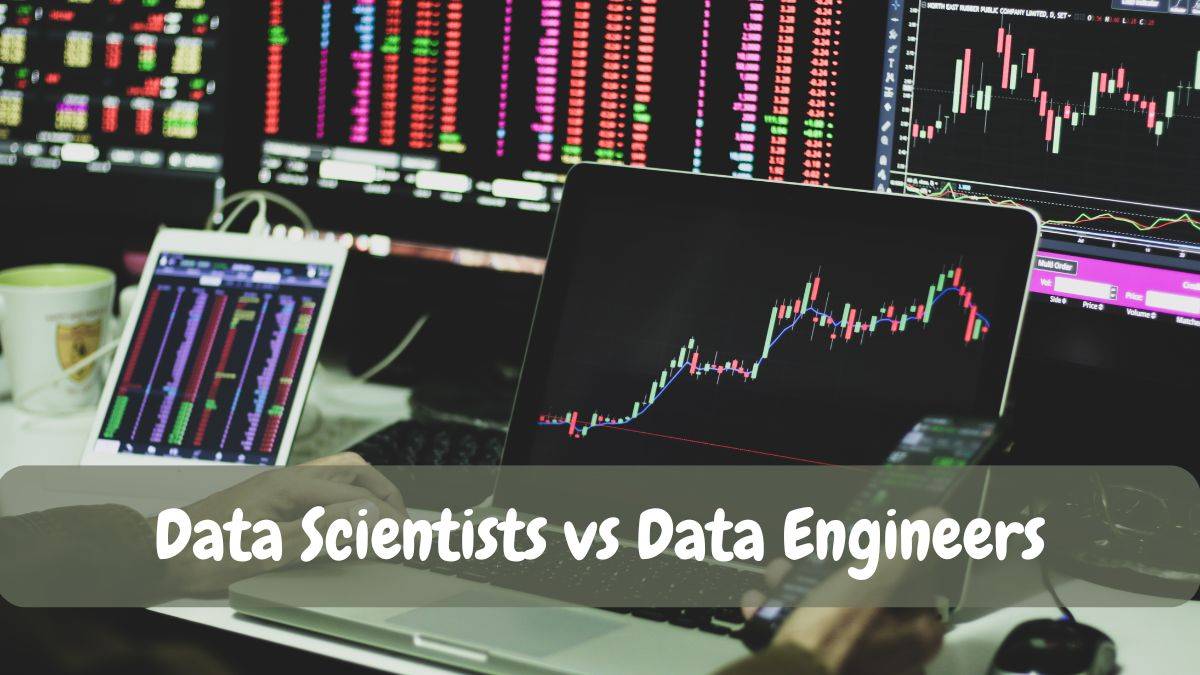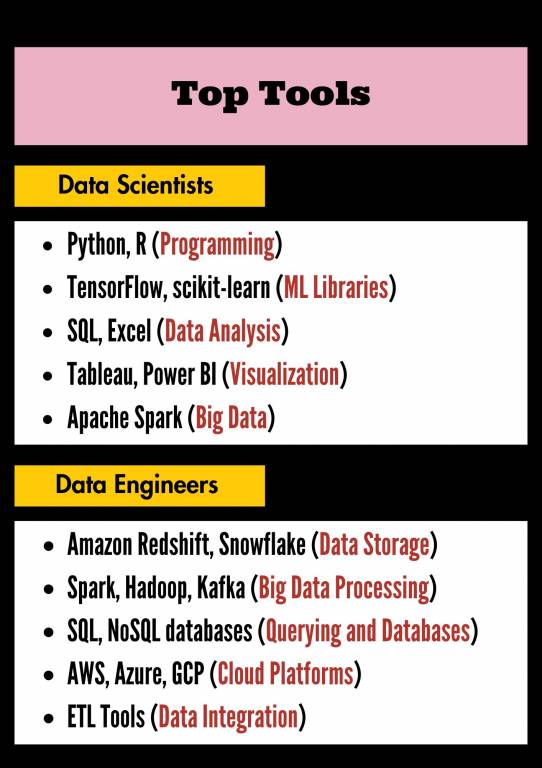Data Scientist vs Data Engineer: Major Differences
Digital transformation has revolutionised how businesses operate, creating unprecedented demands for data professionals who can manage and extract insights from data. Two of the most critical roles in this ecosystem are Data Scientists and Data Engineers. Although these terms are often used interchangeably, their functions and skills differ considerably. Learn more about data scientist vs data engineer in our blog.
The primary difference between a data scientist and data engineer is that a data scientist uses statistics and machine learning to predict trends and behaviours from large volumes of data and derive insights, while a data engineer designs and maintains the infrastructure that enables efficient data storage, cleansing, and processing.
- What is a Data Scientist?
- Main Responsibilities of a Data Scientist
- What is a Data Engineer?
- Main Responsibilities of a Data Engineer
- Difference Between Data Scientist and Data Engineer
- Top Tools Used by Data Scientists and Data Engineers
- How do Data Engineers and Scientists Complement Each Other?
What is a Data Scientist?
A data scientist is responsible for the analysis and interpretation of large datasets. They turn huge amounts of data into actionable insights. A data scientist must have advanced knowledge of statistics, machine learning, and programming, along with a deep understanding of business.
Main Responsibilities of a Data Scientist
The main job role of a data scientist is as follows:
- Data collection and processing: Data scientists collect different data types from various sources and prepare them for analysis.
- Exploratory data analysis: Through statistical techniques and data visualisation, data scientists identify patterns in data, anomalies, if any, as well as relationships within the data.
- Predictive modelling: They use machine learning algorithms to build models that can predict future outcomes based on historic data.
- Data-driven solution development: They help develop solutions that can complement the businesses in their decision-making processes.
-
Communicating Data Insights: They explain complex findings in a more simplified way to make sense to the top management or stakeholders in order to make data-driven decisions.

What is a Data Engineer?
A data engineer designs, builds, and maintains the infrastructure that efficiently allows collection, storage, and processing of data. Their job is crucial as they ensure that data scientists and other professionals can access good-quality data for their analyses and generate useful insights.
Main Responsibilities of a Data Engineer
- ETL/ELT: Automate the flow of data from sources to storage, ensuring it arrives on time.
- Database Optimization: Prepare the databases to handle large data sets, ensuring high availability and better performance.
- Data quality: Ensure data is accurate, complete, and up to date.
- Data Consolidation: Connect various data sources and systems to consolidate information into a centralised environment.
- Data Protection: Ensure that data is protected against unauthorised access and complies with privacy regulations and policies.
Difference Between Data Scientist and Data Engineer
Coming to the original point of discussion, which is, what is the difference between a data scientist and a data engineer? So while both jobs support each other in terms of job responsibilities, there are obvious differences between the two, which are listed as follows:
|
|
Data Scientist |
Data Engineer |
| Main Role |
Leverage data to draw insights, make predictions, and support business decisions |
Develops or maintains systems that efficiently collect, store, and process data |
| Focus Area |
Data analysis, modelling, and interpretation |
Data collection, storage, and pipeline management |
| Primary Goal |
Use data to answer questions and solve business problems |
Make data available, clean, and ready for analysis |
| Key Responsibilities |
|
|
| Tools Used |
Python, R, SQL, Jupyter, TensorFlow, Scikit-learn, Power BI, Tableau |
SQL, Python, Spark, Hadoop, Kafka, Airflow, AWS, Azure, Google Cloud |
| Technical Skills |
Machine learning, Data visualization, Statistics, Predictive modelling |
Database management, ETL (Extract, Transform, Load), Cloud computing, Big data frameworks |
| Mathematical Knowledge |
Strong focus on statistics, probability, and algorithms |
Basic understanding; more focused on systems and architecture |
| Programming Focus |
Writing code for analysis and modelling |
Writing code for building data systems and automation |
| End Deliverable |
Reports, dashboards, predictive models, and insights |
Data pipelines, APIs, and data infrastructure |
| Collaboration |
Works with business teams, analysts, and engineers |
Works with data scientists, analysts, and IT teams |
| Educational Background |
Statistics, mathematics, or computer science |
Computer science, IT, or software engineering |
| Career Outcome |
Helps make data-driven business decisions |
Ensures data is always available, clean, and reliable for use |
| Example Job Titles |
Data Architect, Big Data Engineer, Cloud Data Engineer |
|
| Average Salary (India)* |
INR 15.2 LPA |
INR 11.6 LPA |
*Salary Source: AmbitionBox
Top Tools Used by Data Scientists and Data Engineers
How do Data Engineers and Scientists Complement Each Other?
The relationship between a data scientist and a data engineer is not one of competition, but one of collaboration. The data engineer lays the groundwork, ensuring the data is available, up-to-date, and structured. The data scientist explores that groundwork to discover patterns, generate hypotheses, and make decisions.
For example, in a sales forecasting project, the data engineer consolidates data from the ERP, CRM, and social media. In contrast, the data scientist uses it to build models that predict demand for the next quarter.
Understanding this synergy is essential to creating effective data teams in which each role contributes its strengths.

 Call 8585951111
Call 8585951111

Rashmi Karan is a writer and editor with more than 15 years of exp., focusing on educational content. Her expertise is IT & Software domain. She also creates articles on trending tech like data science,